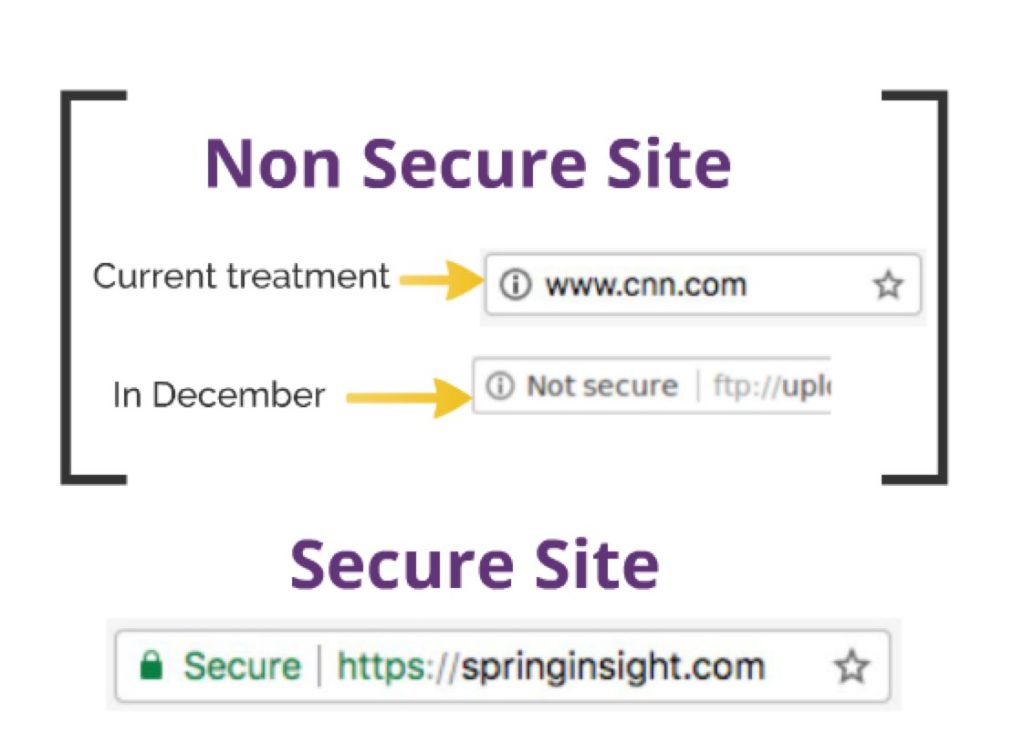
Is your website ready for Google’s security changes?
Every so often, a powerful company in an industry makes a decision that shifts the earth upon which we stand. Do you remember the last time you played a game on Flash? I’m betting it’s been a while, because in one fell swoop in 2010, Steve Jobs felled Flash by announcing that Apple iOS products would no longer support it.
We are in the middle of another such shift. This time, it’s Google making the changes — and it has direct impact on your small business.
Even if digital marketing isn’t your jam, you’re almost certainly aware that Google search algorithms have a huge impact on how you construct and populate your business’ website. Well, now Google is impacting your web presence in another way: It wants all websites to use the HTTPS protocol instead of HTTP. (Yes, we’ve discussed this before, but it is important enough to discuss twice.)
That ‘S’ on the end stands for “secure,” and Google isn’t being a silly over protective grandma here. The HTTPS protocol protects both you and the visitors of your website. In a standard HTTP connection, someone wishing to cause harm could divert traffic meant to come to your site and post erroneous information, or even inject malware. Scared? You can read more about it here.
Google isn’t just hoping companies will adopt HTTPS protocol: It’s actively working to motivate companies to update their websites. Back in 2014, Google announced that it would start giving a search ranking boost to HTTPS sites. Then, in December 2016, they notified the world that they would start warning visitors on Chrome that certain sites (first those that accepted credit card info, and later those that collected any information) without HTTPS are “not secure.” This December, with the release of Chrome 63, Google plans to begin marking all HTTP sites as non-secure.
If you’re not a Chrome user yourself, you may not realize the magnitude of the change. To give you some idea of the impact, as of September 2017, Chrome held almost 60% of the browser market share.
Looking ahead, I predict Google will continue to make life difficult for non-adopters, perhaps noting “not secure” on search results page, and in the future, perhaps even gating the site, as they do now for sites they have identified as compromised.
What can you do?
Unlike many issues, this one is likely a pretty easy fix. The easiest fix is to call your website hosting company, purchase an SSL certificate and ask them to install it. (This will likely cost around $99 a year.) If you want to get your hands a bit dirty, you can go the free option with something like Let’s Encrypt, which Google sponsors, and which is also pretty easy. Details and directions can be found here.
If you’ve already seen your friends on Facebook counting down to the holiday season, you know December is approaching, and fast. Don’t delay in securing your website, so that your visitors can easily and confidently access all your small business has to offer!
Looking for more great website and marketing tips? Follow Spring Insight on Twitter, Facebook, or Google +.
